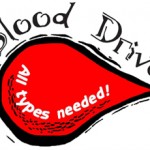Samantha Dunn, the next presenter in Eduardo Santiago’s Idyllwild Author Series, grew up with horses in rural hardscrabble New Mexico.
Riding, dance, growing up poor in parched Southwest landscapes, her mother’s brilliance and alcoholism, and Dunn’s journey to redefine herself as a grown woman are key themes in her writing.
“At the age of 3 I was trying to con my way on to a palomino,” remembered Dunn. “I had my first pony at age 5. There are years in my life I do not remember being inside,” she said.
Sixteen years ago, Dunn’s passion for riding led to a major life transition when a freak accident on a trail in the hills above Malibu left her severely injured. At the time of the accident, Dunn had created a very different life from her New Mexico childhood. She had established a flourishing career in journalism, writing for InStyle and Glamour, spoke fluent French, and was living the California dream of sophistication and success.
When her thoroughbred horse would not cross a stream on the trail, Dunn dismounted and tried to lead the horse across. The horse fell on her and a hoof went through Dunn’s calf. Dunn’s first on-scene rescuer, Edward Albert Jr., the son of actor Eddie Albert, stayed with her through the rescue. While waiting for paramedics, Dunn asked him why he had never danced. Later he figured in her long healing process, insisting she stay at his father’s home where she could be looked after during her recovery. He encouraged her to explore dancing, long a part of her mother’s passion, but not then of Dunn’s own. In taking up dancing, she remembered that it was on the dance floor that her mother and father met. She noted that in many ways dancing was her parent.
After recovering, and as a journalist always looking for freelance writing opportunities, Dunn discovered salsa dancing and became a regular at the Conga Room on Wilshire Boulevard. Dancing became her spiritual practice. The physical activity — balanced and repetitive movements — healed her brain and neural pathways, Dunn said.
As she became immersed in this recovery, Dunn reflected on dancing and her life prior to the accident. She said she began to dwell on the difference between dancing salsa at the Conga and her previous glamorous coastal lifestyle with its social and class divisions. “There is in this country such misunderstanding and contempt among classes,” she said. “We don’t look into the face of these issues.”
Dunn describes her transition and the spiritual uplift of salsa dancing as a metaphor and metronome for living in her memoir, “Faith in Carlos Gomez: A Memoir of Salsa, Sex and Salvation” (Henry Holt and Company, N.Y. 2005), the book she will discuss with Santiago. “There are two things that have saved my life,” said Dunn. “Riding and dancing.”
Her next work, what she calls her magnum opus, “Trailer Trash: An American Story,” humorously and affectionately recalls her New Mexico upbringing and subsequent journey in all its unedited authenticity.
Asked about her writing process, Dunn said she writes every day. When she reads, she takes notes. What’s difficult, she said, is deciding whether or not to wait for inspiration. “My muse is a dumb b---- who never shows up on time,” she laughed. “The last stage of my process is always sleeping with my laptop so when that inspiration comes I can capture it. I wear the same thing for a month. I eat the same thing for breakfast, a piece of peanut butter toast with some black tea to drink and celebrate with a McDonald’s filet of fish sandwich.”
Dunn, if the reader has not already noticed, is funny. She describes herself, quoting Mae West, “She’s the kind of girl who climbed the ladder of success wrong by wrong.”
Dunn appears with Santiago on Café Aroma’s upper deck at 3 p.m. Sunday, July 7. The event is free to the public.
She teaches writing at UCLA Extension Writers’ Program, writes a regular column called “Everyday Heroes” for the Orange County Register and, her first novel “Failing Paris,” was a PEN West Fiction Award finalist in 2000.










